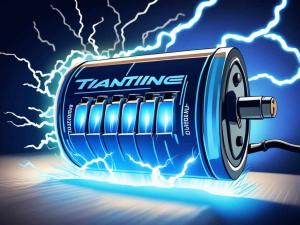Applications of LiFePO4 Battery
For Big and Business Solar Systems
For large solar energy storage systems, such 50kWh systems, modular LiFePO4 battery will be more appropriate.
Modular LiFePO4 batteries, a type of server rack battery, have a capacity of up to 50 kWh in one group and can be paralleled with additional groups. Apart from that, it is more stable as the BMS becomes more and more advanced.

Solar and Renewable Industry
For energy storage systems (ESS), like solar and other renewable systems, LiFePO4 batteries are perfect. because LiFePO4 batteries are safe and have a very long life.
In developed nations, the LiFePO4 battery is the most widely used member of the new generation of energy storage batteries.
In order to replace the original lead-acid batteries, several battery packs of 12V, 24V, and 48V are typically chosen.
For Tiny Solar System
Maxworld LiFePO4 Battery is a feasible solution for small solar systems, such as 12V/24V200Ah or higher to 48V300Ah.
For instance, because the Maxworld 12.8V battery has the same size casing as the original lead-acid battery, it may be directly upgraded.

For Home Solar System
Another well-liked alternative for residential solar batteries is the “power wall” variety. Because it may be incorporated into house design, attractiveness has a big impact.
UPS and Backup Power
Standard lead-acid batteries are affordable and compatible with UPS systems. They also have enormous instantaneous discharge currents. They are also suitable for low-temperature discharge.
Lead-acid batteries still outperform LiFePO4 batteries in these circumstances. Due to their 8-times longer cycle life than lead-acid batteries, LiFePO4 batteries have an edge over them. Cycle life is essential in locations where daytime power interruptions are common. Afterward, the backup power system changes into a deep cycle storage system, whose longer service life is caused by a higher cycle life.
While LiFePO4 batteries can last up to 15 years between replacements, lead-acid batteries normally need to be changed every 3 to 4 years. Lead-acid batteries are clearly a superior option if you live in a location where power outages are few (a few times per year at most) and the battery bank is floating at least 99% of the time.
In one of the situations, a downtown high-rate LiFePO4 battery has additional needs. More floor space can still be saved even though the high-rate LiFePO4 battery for the UPS systems in such CBDs is more expensive than the cost of the room.
Base Station for Telecommunications
For big energy storage systems (ESS) like communication base stations, the model of 51.2V LiFePO4 battery becomes more and more popular.
Due to its high energy density, great stability, good performance at high temperatures, exceptionally long cycle life, environmental friendliness, and other benefits, LiFePO4 batteries are becoming more and more well-liked as lithium-ion battery technology advances.
The stability of telecom base stations is significantly impacted by the severe environment and humidity. Therefore, a strong battery is essential for preserving the network signal. In this case, LiFePO4 batteries are helpful. The advance of 5G technology is another fact affecting the demand for LiFePO4 batteries in telecom base stations. Since the cost of Lifepo4 batteries going down, LiFePO4 is becoming a more cost-effective investment.
In China, LiFePO4 batteries are currently used in the majority of telecom stations. Being able to take part in the program is a privilege for us.
Electric cars
EVs use high-rate LiFePO4 batteries due to their safety. Their blade cells are used in BYD’s new “HAN” series of dynastic vehicles.
Vehicles at low speeds and golf carts
In place of Trojan motive batteries, LiFePO4 batteries are now commonly seen in low-speed vehicles like golf carts, police cars, and tourist carts.
The LiFePO4 battery is lighter, quicker, and operates better in hot settings.
CCTV and Security System
In a security monitoring system, the battery bank acts as a backup power supply, just like a UPS would in the event of a power failure.
Boats, RVs, Motorhomes, and Caravans
LiFePO4 batteries should be charged and discharged at a current of 0.5C, which is much higher than the 0.2C advised for lead-acid batteries. LiFePO4 batteries are more suitable for these applications than lead-acid batteries.
LiFePO4 batteries have a very long cycle life as a result of deep charging and deep discharging cycles, which is a huge advantage.





-300x169.jpg)





